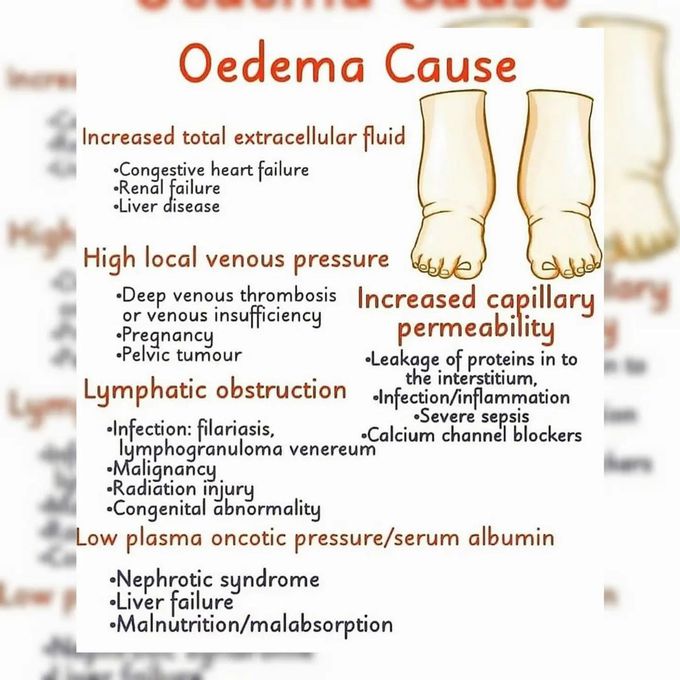


Edema
Edema, also spelled oedema, and also known as fluid retention, is the build-up of fluid in the body's tissue. Most commonly, the legs or arms are affected. Symptoms may include skin which feels tight, the area may feel heavy, and affected joints may be hard to move. Other symptoms depend on the underlying cause. >Six factors can contribute to the formation of edema: ● Increased hydrostatic pressure ● Reduced colloidal or oncotic pressure within blood vessels ● Increased tissue colloidal or oncotic pressure ● Increased blood vessel wall permeability (e.g., inflammation) ● Obstruction of fluid clearance in the lymphatic system ● Changes in the water retaining properties of the tissues themselves. Raised hydrostatic pressure often reflects retention of water and sodium by the kidneys. >Causes may include venous insufficiency, heart failure, kidney problems, low protein levels, liver problems, deep vein thrombosis, infections, angioedema, certain medications, and lymphedema. It may also occur after prolonged sitting or standing and during menstruation or pregnancy. The condition is more concerning if it starts suddenly, or pain or shortness of breath is present. >Treatment depends on the underlying cause. If the underlying mechanism involves sodium retention, decreased salt intake and a diuretic may be used. Elevating the legs may be useful for edema of the legs. Older people are more commonly affected. By: https://www.instagram.com/p/CbFfcx4JsLK/?utm_medium=copy_link
Source: https://www.instagram.com/p/CbFfcx4JsLK/?utm_medium=copy_link
